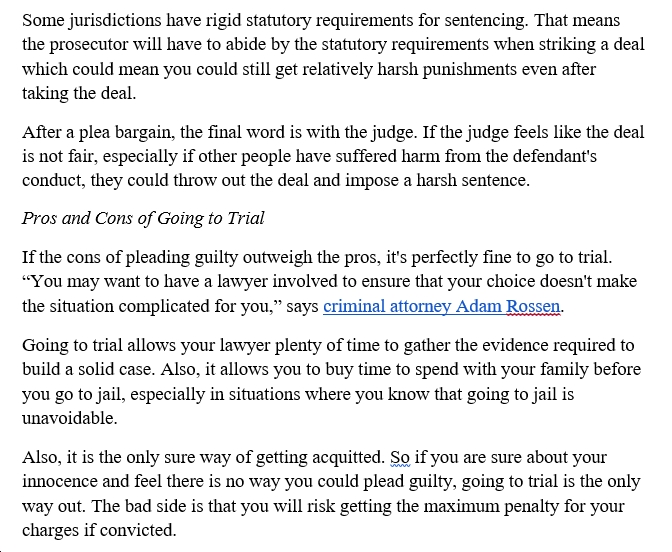SPONSORED CONTENT
Medical Neglect Can Cause Termination of Parental Rights
A child’s environment can be a source of medical neglect, both emotional and physical. The US Court of Appeals for the Fourth Circuit recently ruled that termination of parental rights is appropriate for parents with no plans to meet their children’s medical needs.
The Need for Evidence
Before terminating a parent’s rights, the Department of Family and Protective Services (DFPS) must follow due process to convincingly prove that the parents had no plans to cater to their child’s medical needs. In doing this, the DFPS must meet its burden of proof. Appellate courts will review the record to ensure that the DFPS submitted unambiguous and convincing evidence to provide a statutory ground for the termination of parental rights. They will also verify if the termination serves the child’s best interest.
“Generally, people strongly presume that maintaining the parent-child relationship serves children’s best interests. To rebut this presumption, an individual or organization wanting to end the parent-child relationship must prove beyond a reasonable doubt that the continuation of the relationship would hamper the child’s interests,” explains Attorney Mark Sherman of Connecticut Domestic Violence Information Center.
The courts will decide based on the following factors:
- The child’s desires
- The physical and emotional needs of the child, present and in the future
- The physical and emotional threat to the child, present and in the future
- The parental strengths of the person(s) seeking custody
- The available programs to help those people enhance the child’s quality of life
- The plans for the child by those seeking custody
- The stability of the proposed placement or home
- The actions or inactions of the parents that may indicate a fractured or improper parent-child relationship
- Any explanation for the actions or inactions of the parent
The Case Study of J.A.R.R, J.N.R., and M.A.R
The Court of Appeal recently heard a case in the interest of J.A.R.R., J.N.R., and M.A.R. The court had to review the following context:
In May 2020, the DFPS took three children (J.A.R.R, M.A.R, and J.N.R) from their parents’ home and got a report of medical neglect. At the point of their removal, J.N.R. and M.A.R. were so underweight, they got hospitalized for malnourishment. J.A.R.R., on the other hand, was extremely overweight.
The Department got tentative management conservatorship over the kids, put them in foster care, and instituted a petition to terminate the parents’ parental rights. During the trial, the Department put M.A.R. and J.A.R.R. in the custody of their mother’s brother, D.R., and his wife, J.G.R. However, it placed J.N.R. in a special licensed foster home because of her complex medical needs.
In a trial that lasted over four months in different settings, the court heard from seven witnesses, including the parents’ therapist, Victoria Caylor, the Department’s caseworker, Alyssa Miller, a Department caseworker who briefly took over the case while Miller went on leave, Myrah Guerra, the court-appointed special advocate, the aunt; and the parents.
In its ruling, the court applied a precedent that “neglect of a child’s medical needs endangers the child,” quoting several cases.
In the case at hand, the Court of Appeals admitted the proof that although the DFPS did not take the children away until May 2020, it had started working with the family in January 2020. Despite the Department’s efforts in the first quarter of 2020, four-month-old M.A.R. and five-year-old J.N.R. were malnourished and underweight, so they were admitted to a hospital immediately after their removal.
The father consented at trial that J.N.R.’s weight of 24 pounds was the average of a two-year-old. Also, the parents did not contend that hospitalization was not necessary.
Further, J.N.R. had special needs; she could only eat through a G-tube. Before the Department stepped in, her G-tube was leaky, according to the father, denying the child the opportunity to take needed nutrients. The parents did not bother to replace the faulty G-tube.
According to the caseworker, J.N.R.’s G-tube was ill-fitting and leaking, which the parents did not notice. The child failed a swallow study.
Miller argued that the parents’ inability to know that the child could choke on solid foods shows their deficiency in nurturing her. Also, there was no alternative plan to convince the Department that J.N.R. received proper nutrition.
Another caseworker, Guerra, testified that J.N.R. had growth hormone deficiencies, adrenal insufficiency, likely sickle cell traits, cerebral palsy, and hypothyroidism. Due to these conditions, the parents should take her to approximately six medical appointments weekly. However, they missed many such appointments before her removal because the parents lacked the money to transport her easily.
Even more appalling, it appeared that the parents placed nine-year-old J.A.R.R. in the position of caring for his younger siblings. The caseworkers also testified about the combative and argumentative nature of the father. He lacked accountability and would not accept blame.
Conclusion
The appellate court was able to establish that the environment was dangerous for the emotional and physical well-being of the children. It also established that the parents could not convincingly articulate a plan of action to address the children’s needs. Hence, they had reasonable grounds to terminate their parental rights.


















